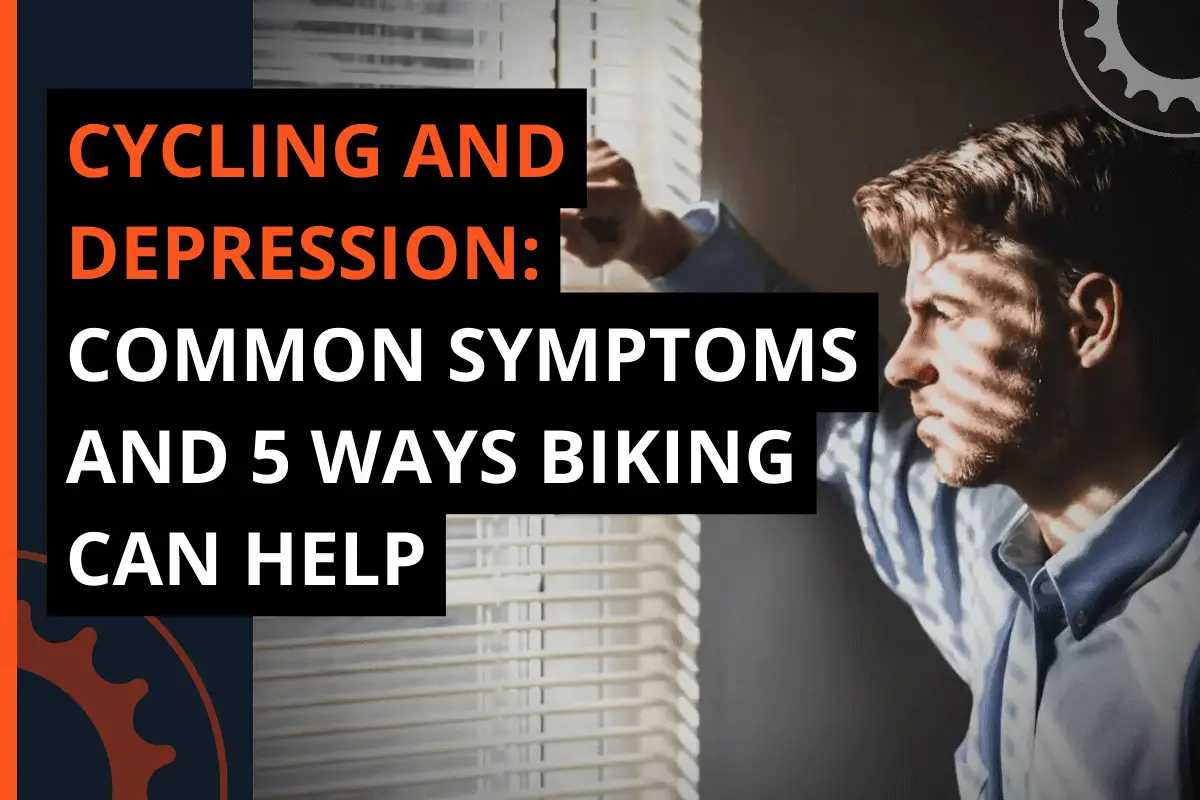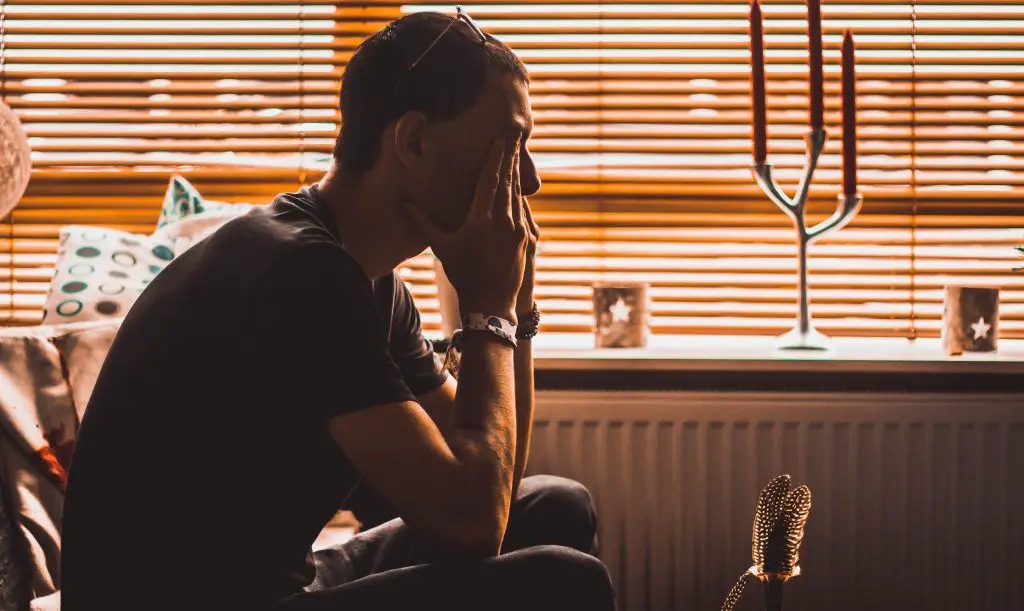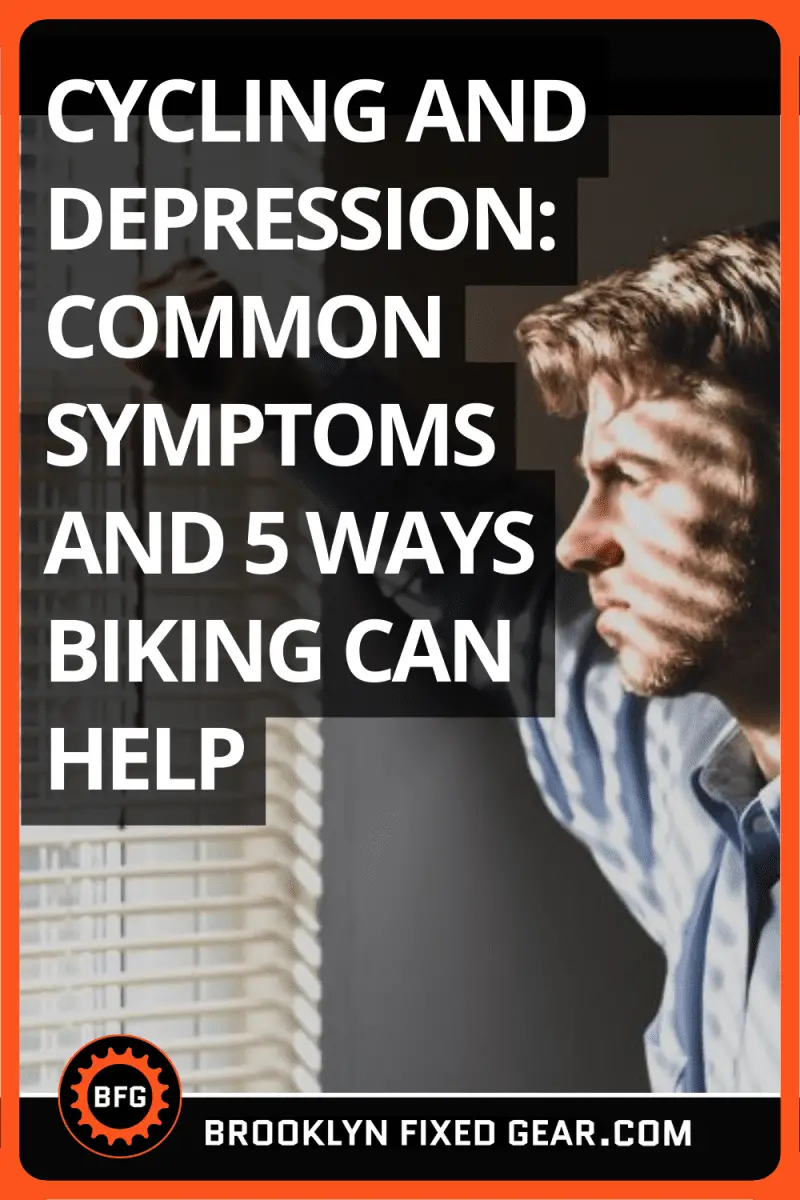Like most people, cycling is probably one of your favorite activities. It’s fun, and it’s beneficial for your mind and body. What about cycling and depression, though? Does cycling make depression worse or better?
This article will teach you what depression is, what the common symptoms of depression are, and if cycling is good for depression and overall mental health, so you can live a better, healthier, happier life.
Some studies suggest that cycling may be therapeutic for people suffering from depression because cycling is an aerobic activity that has been demonstrated to help enhance energy levels and mood. Riding a bike also helps you concentrate on something other than your thoughts or feelings.
Editor’s note: This article was updated on July 5, 2022, to include additional information about cycling and depression. I am not a doctor. Please speak to your doctor for professional medical advice.
Before learning about cycling and depression, let’s first understand what depression is.
What is depression?
Depression is a condition characterized by chronic sorrow and a loss of interest. It affects how you feel and behave. And it can lead to various mental and physical difficulties. It is also known as major depressive disorder or clinical depression. You may have difficulty performing common daily activities and feel like life isn’t worth living.

Depression is much more than just a bad mood; it isn’t something you can “snap out of.” Depression may necessitate long-term therapy or medication.

State Bicycle Co. Black Label 6061

State Bicycle Co. Black Label 6061
What are the common symptoms of depression?
People suffering from depression suffer from several symptoms, which may include:
- Sadness, tearfulness, emptiness, hopelessness, rage, impatience, or frustration, even over minor issues.
- Loss of enjoyment or interest in most typical activities, such as sex, hobbies, or sports.
- Sleep problems, such as insomnia or excessive sleeping,
- Tiredness and a lack of energy make even minor chores difficult.
- Reduced food desires and weight loss versus increased food desires and weight gain
- Anxiety, agitation, difficulty thinking, concentrating, making judgments, and forgetting things.
- Suicidal thoughts, suicide attempts, or suicide are common or recurring thoughts.
Is cycling good for depression and overall mental health?
Cycling is undeniably beneficial for depression. Cycling can help you build your brain as it can help you grow your muscles. Blood flow to the brain increases as it does to the muscles, bringing in extra oxygen and nutrients that can help it operate better. And it allows your mind to focus on something external rather than internal.
Additionally, cycling doubles or triples the production of proteins in forming new brain cells. It also increases the actions that allow our brain’s various areas to communicate more effectively. Cycling has also been shown to help fight the natural decline in brain function and growth that comes with aging.

Five ways cycling can help reduce depression
Riding is frequently mentioned as being beneficial to positive mental health. And, like other motor abilities, the rhythmic, aerobic, and low-impact aspects of cycling have recognized brain-boosting advantages. Here are some things that cycling can do for people with depression:
1. It helps you sleep better
Regular riding helps keep your circadian rhythm in sync and can lower your stress hormone levels, making it easier to fall asleep.
2. It improves your memory.
Riding a bike promotes the formation of new brain cells important for memory.
3. It improves creative thinking
Cycling’s constant, consistent movement relaxes the brain, regulating physical and mental performance. It might be a terrific way to “zone out,” but it can also be used for meditation. Concentrate on your activities, each leg movement; the rhythm of your breathing; and the breeze on your face. If you concentrate just on the physical feelings and activities of riding, you might be amazed at how quickly your mind clears.
4. It improves your mood
Regular bikers discuss the “cycling high,” a cousin to the well-known “runner’s high.” Cycling circulates blood throughout your body, allowing endorphins and other feel-good chemicals like dopamine, norepinephrine, and serotonin to spread quickly throughout the body.
5. Social benefits
Cycling allows you to join a group of like-minded people. It’s a terrific way to meet new people and make new friends. And as you conquer harder terrain, you tend to feel better about yourself. Thus, cycling is also great for self-esteem.
How often do you cycle to get the benefits?
A healthy balance, according to scientists, is 30-60 minutes of steady biking at a good pace (no sprinting!). It is also advised to keep our heart rate at about 75% of our maximum. Three to five sessions per week are sufficient to start reaping the benefits. It’s a simple, entertaining way to supplement your mental health first aid kit.
If you don’t own any kind of bike, below are some fixed-gear bikes that I recommend.
[azonpress template=”grid” asin=”B07VVGW8JD,B01B5H1A96,B07WJ4S1RM”]
If you want even more tips, watch this video called “How Cycling Can Boost Your Mental Health – GCN Does Science” from the Global Cycling Network YouTube Channel.
Frequently asked questions (FAQ)
Do you still have questions? Below are some of the most commonly asked questions about cycling and depression.
Does cycling help mental health?
Yes. Cycling stimulates the release of endorphins or “feel-good” hormones. These chemicals contribute to mental relaxation and happiness. This improves your mood and lessens your anxiety. People who cycle regularly have a much-decreased likelihood of feeling stressed.
Does biking reduce anxiety?
Yes. A study published in Science Direct found that aerobic activities like running and cycling can reduce anxiety and may stop anxiety from worsening and turning into full-blown panic attacks or disorders.
Do cycling release serotonin and dopamine?
Yes. Your brain receives a surge of serotonin, the “happy hormone,” as soon as you begin pedaling. When lab rats begin running on wheels, their serotonin levels increase by up to 200 percent. Serotonin levels remain elevated after a ride, keeping you happy throughout the day. You also increase dopamine, which makes us feel good, sharpens our focus, and accelerates muscular reaction times.
Does cycling reduce stress?
Yes. Cycling can lower cortisol (the stress hormone) levels in the body, disrupting restful and deep sleep. It can also promote the production of serotonin, which can help with sleep. Cycling can also assist in balancing your circadian rhythm and enhancing your sleep patterns.
Conclusion
Do you struggle with depression? If so, cycling can be a terrific way to distract yourself and clear your mind. The beautiful thing about cycling is that it is an exercise that anyone, regardless of fitness level, can enjoy. It can also help with stress relief and mood enhancement!
This article covered what depression is. What are the common symptoms of depression? Is cycling good for depression and overall mental health? Here are some key takeaways:
Key takeaways
- Depression is a mood condition characterized by chronic sorrow and a loss of interest.
- It affects how you feel, think, and behave and can lead to various mental and physical difficulties.
- Some studies suggest that cycling may be therapeutic for people suffering from depression.
- Cycling is good for your health. Studies show that cycling reduces blood pressure and cholesterol and improves mood.
- Cycling is a great way to exercise while reaping some health benefits. It allows you to be free of time constraints, enormous crowds, and social obligations.
- Cycling can help you build your brain as it can help you grow your muscles.
- Cycling has also been shown to help fight the natural decline in brain function and growth that comes with aging.
So, are you suffering from this ailment? I’m sorry to hear that, and I hope things change for the better? Did we cover everything you wanted to know? Let us know in the comments section below (we read and reply to every comment). If you found this article helpful, check our full blog for more tips and tricks on fixed-gear and single-speed bikes. Thanks for reading, and stay fixed.
Helpful resources
- Can cycling help with grief and depression?
- Articles about Fixed Gear and single-speed Cycling and Equipment
- Fixed-gear bicycle – Wikipedia
















